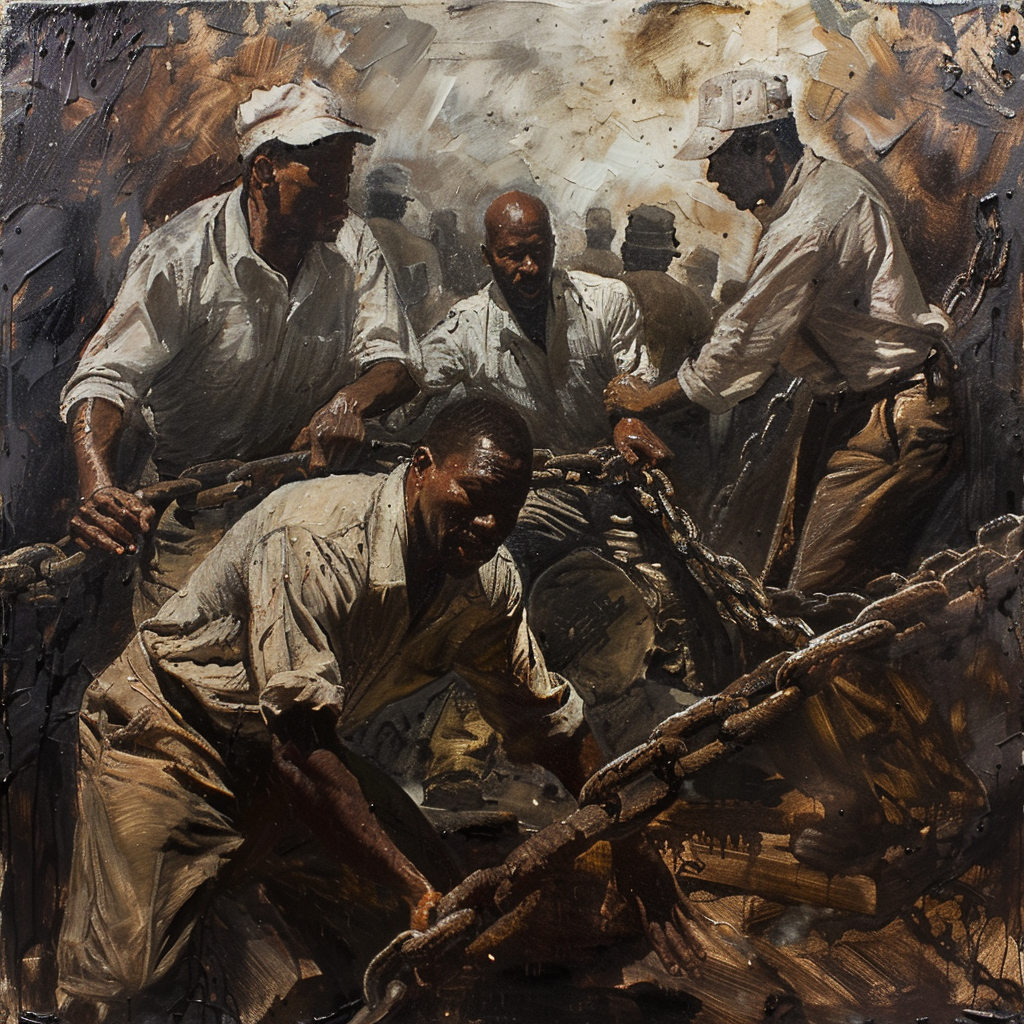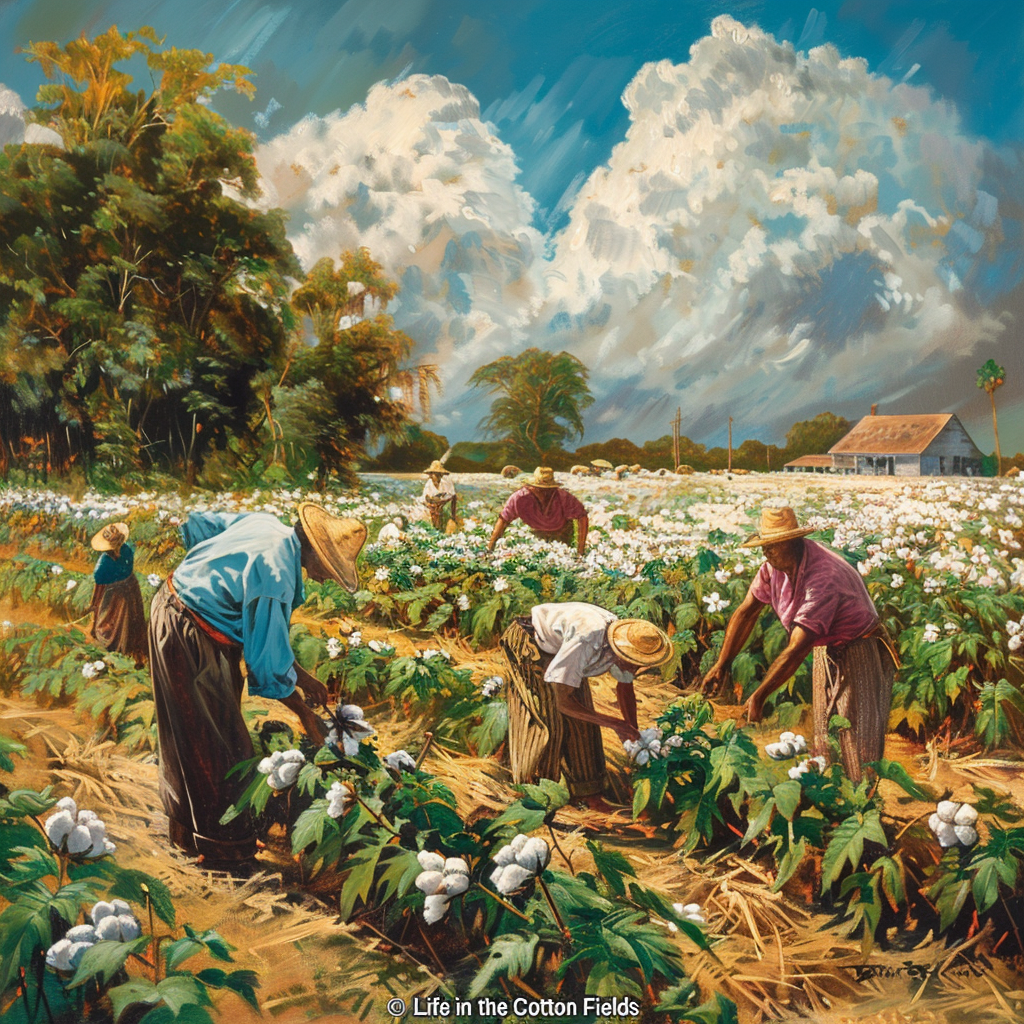Slavery
Definition
Slavery is a socio-economic system under which persons are owned by others, where the enslaved individuals are deprived of personal freedom and forced to perform labor or services against their will.
Parts of Speech
- Noun
Pronunciation
American English
- IPA Pronunciation: /ˈsleɪvəri/
- Respelling: SLAY-vuh-ree (with "SLAY" as in "play," "vuh" as a schwa sound like the 'a' in "sofa," and "ree" as in "see")
British English
- IPA Pronunciation: /ˈsleɪvəri/
- Respelling: SLAY-vuh-ree (similar to American English, with "SLAY" as in "play," "vuh" like the 'a' in "sofa," and "ree" as in "see")
In both dialects, "slavery" is pronounced with the primary stress on the first syllable, "SLAY." The pronunciation of "slavery" is consistent between American and British English, accurately reflecting the word's structure and emphasis.
Etymology
The word "slavery" is derived from Old French sclaverie, which is based on Medieval Latin sclavus ("slave"), from Slavonic slavus. The use of the term is tied to the historical enslavement of Slavic people in early medieval Europe.
Derivatives
- Slaveholder
- Slave-trade
- Slave-ship
- Slave-labor
- Slave-driver
Synonyms
- Bondage
- Servitude
- Thralldom
Antonyms
- Freedom
- Emancipation
- Liberation
Usage
The term "slavery" is primarily used to refer to a system of forced labor where individuals are owned by others. It is a term with historical significance, particularly in reference to the Transatlantic Slave Trade and chattel slavery in the United States. Slavery continues to be a subject of discussion in the context of modern-day forms of forced labor and human trafficking.
Related Terms
- Human trafficking
- Bondage
- Forced labor
- Chattel slavery
- Indentured servitude
Detailed Definition
Noun
- System of Ownership: A social system under which certain individuals, known as slaves, are property of others, deprived of personal freedom, and compelled to perform labor or services.
- Example: Slavery was abolished in the United States in 1865.
- Condition of being enslaved: A condition compared to that of a slave in respect of exhausting labor or restricted freedom.
- Example: He worked in slavery for twenty hours a day with little pay.
- Excessive dependence on or devotion to something.
- Example: Slavery to routine can be a major creativity killer.
slavery



🇨🇳 Mandarin
- 奴隶 (núlì)
- IPA: /nu˨˩ li˨˩/
- Respelling: noo-lee
🇮🇳 Hindi
- दासता (dāstā)
- IPA: /dɑːs.tɑː/
- Respelling: dah-stah
🇪🇸 Spanish
- Esclavitud
- IPA: /es.klaˈβi.ðuð/
- Respelling: esk-lah-VEE-duth
🇫🇷 French
- Esclavage
- IPA: /ɛs.kla.vaʒ/
- Respelling: es-klah-vahzh
🇸🇦 Modern Standard Arabic
- العبودية (al-‘ubūdīya)
- IPA: /alʕuːbuːdijja/
- Respelling: al-oo-boo-dee-ya
🇧🇩 Bengali
- দাসপ্রতিষ্ঠা (dāsapratiṣṭhā)
- IPA: /daspro̩t̪istʰa/
- Respelling: dahs-pro-tish-thah
🇷🇺 Russian
- Рабство (Rabstvo)
- IPA: /ˈrab.stvə/
- Respelling: rab-stvuh
🇵🇹 Portuguese
- Escravidão
- IPA: /ɛskɾɐviˈðɐ̃w̃/
- Respelling: esh-krah-vee-DAON
🇮🇩 Indonesian
- Perbudakan
- IPA: /pər.bu.da.kan/
- Respelling: pur-boo-dah-kahn
🇩🇪 German
- Sklaverei
- IPA: /ˈsklaː.və.ʁaɪ̯/
- Respelling: sklah-veh-rye
🇯🇵 Japanese
- 奴隷制度 (dorei seido)
- IPA: /do̞ɾe̞ː se̞ːdo̞/
- Respelling: doh-ray say-doh
🇻🇳 Vietnamese
- Nô lệ
- IPA: /nəː˧˩ le˧˧/
- Respelling: nuh lay
🇰🇷 Korean
- 노예제도 (noyejedo)
- IPA: /no.je.je.do/
- Respelling: noh-yeh-jeh-doh
🇹🇷 Turkish
- Kölelik
- IPA: /kø.le.lik/
- Respelling: kuh-leh-leek
🇵🇰 Urdu
- غلامی (ghulāmī)
- IPA: /ɣʊ.lɑː.miː/
- Respelling: ghoo-lah-mee





